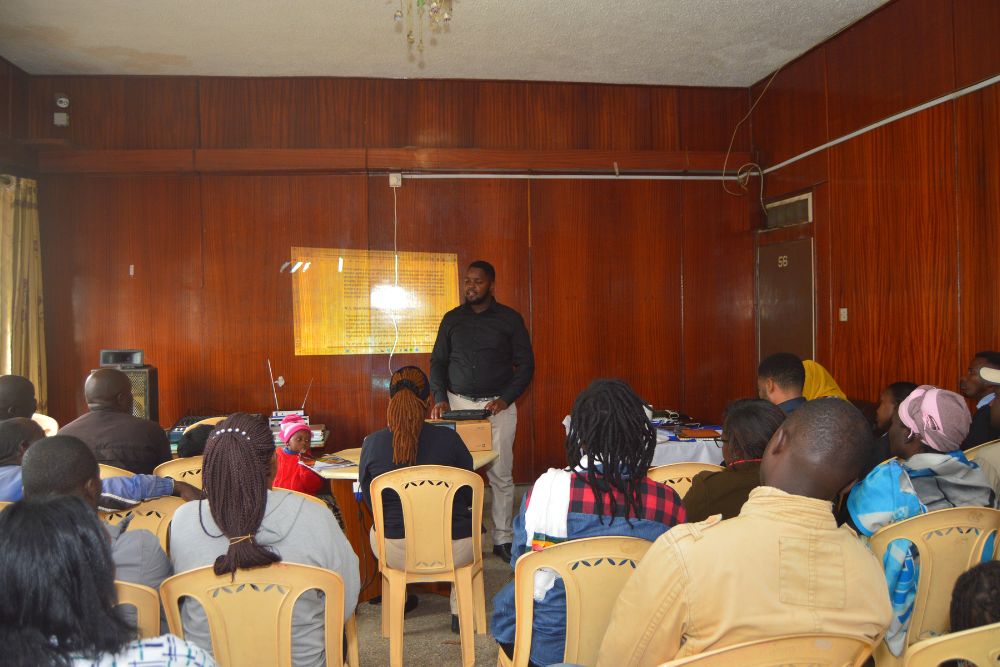In Mathare, a large informal settlement in Nairobi, Kenya, there is an urgent need to improve access to quality public education, and to regulate private actors providing educational services in the community. These are some of the key findings in ‘Build Us More Schools’: The Quest for Quality Free Education in Mabatini and Ngei Wards of Mathare, Nairobi, a research report published today. The report was produced by the Mathare Community Education Taskforce (Taskforce), in partnership with the International Commission of Jurists (ICJ) and the Global Initiative for Economic, Social and Cultural Rights (GI-ESCR).
“The recent protests in Kenya speak to important issues in our community that affect our children’s education. We need the government to prioritize resources for funding education. Not just now, but also into the future,” said Noah Adipo, Community Liaison of the Taskforce.
“While we know we have a right to education in our community, children still do not have access to free schooling. There are no public schools in the Ngei and Mabatini wards of Mathare at all. Many children are forced to go to private schools and the conditions at most of these schools is very bad”, he added.
The report documents a variety of human rights concerns arising, in part, from the underfunding of education in Kenya. A lack of resources, including financial resources and land, is sometimes given as a reason for the failure of government to build enough public schools to accommodate all learners. Public schools that operate in Mathare are overcrowded and do not have enough teachers to provide quality education to all students.
Private schools, including informal private schools known as Alternative Providers of Basic Education and Training (APBET schools), established under policies promoted to improve access to education, enjoy little or no government support whether financial or otherwise. There is minimal effort to monitor and evaluate the quality and conditions of education at such schools, with evidence suggesting that though such oversight is required by law, only 12% of Kenya’s learning institutions are assessed annually.
Poor funding of education of education results in inequality in education and charging of unaffordable fees in both public and private schools.
“There is a need for the government to ensure that the education budget allocation from the national revenue provides sufficient resources to guarantee the full realization of the right to free education as provided for under Article 53 (1) (b) of the Constitution and international law,” said Roselyne Onyango, Associate Programme Officer – Africa at GI-ESCR.
“Sufficient resources mean that while education in Kenya receives a significant portion of the national revenue during budget allocation, there is a need to ensure that these funds are allocated to provide enough schools, classrooms, teachers and learning materials to students,” she added.
Grounded in interviews with parents and staff at private educational institutions in the Mabatini and Ngei wards, the report documents the following critical challenges in access to education:
- Unaffordability;
- Unqualified teachers;
- Low quality and failure to undertake quality assurance;
- Unsafe travel to schools;
- Unsafe conditions at schools;
- Lack of water and electricity access at schools;
- Waste pollution, sewage overflow/flooding, noise pollution near schools;
- Inadequate and low-quality food at schools; and
- Schools are not inclusive for children with disabilities.
“Overall, it is clear that Kenyan authorities are failing to comply with their international legal obligations and domestic law in terms of the right to education”, said Wilson Macharia, ICJ’s Associate Legal Adviser.
“Indeed, Kenya has failed to implement a number of recommendations by United Nations Treaty Bodies which specifically prescribe that it to improve access to public education and better regulate the conditions at private educational institutions”, he concluded.
The report contains detailed recommendations addressed to a range of Kenyan authorities, including in particular:
- the construction of public schools in areas where there is no access to public schools;
- the conversion of selected APBET schools to public schools; and
- the rigorous monitoring of APBET schools while also enforcing a timebound and provisional framework for establishing public schools.
To achieve these recommendations, there is a need for the state and the Ministry of Education to ensure that with all allocations of the education budget, there is a share that goes to the building of more public schools.
For more information
[Full Report] The full report is available here.
[Executive Summary] An executive summary of the report is available here.
Background
Article 43(1)(f) of the Kenyan Constitution guarantees the right to education. Article 2 also provides that “any treaty or convention ratified by Kenya shall form part of the law of Kenya under this Constitution”. In line with its legal obligations under the treaties to which it is bound, Kenya must ensure that education is available, accessible, adaptable and acceptable, and that it uses the maximum of its available resources to progressively realize the right to education.
These treaties include the International Covenant on Economic, Social and Cultural Rights, the Convention on the Rights of the Child, the African Charter on the Rights and Welfare of the Child and the African Charter on Human and Peoples’ Rights. Members of the Mathare Community Education Taskforce have participated in various engagements informing them on content of the Abidjan Principles, which are expert principles detailing international law and standards in respect of public and private provision of education.
Relevant recommendations already made to the Kenyan government by UN Treaty Bodies include those made by the Committee on Economic, Social and Cultural Rights, the Committee on the Rights of the Child and the Committee on the Rights of Persons with Disabilities.





